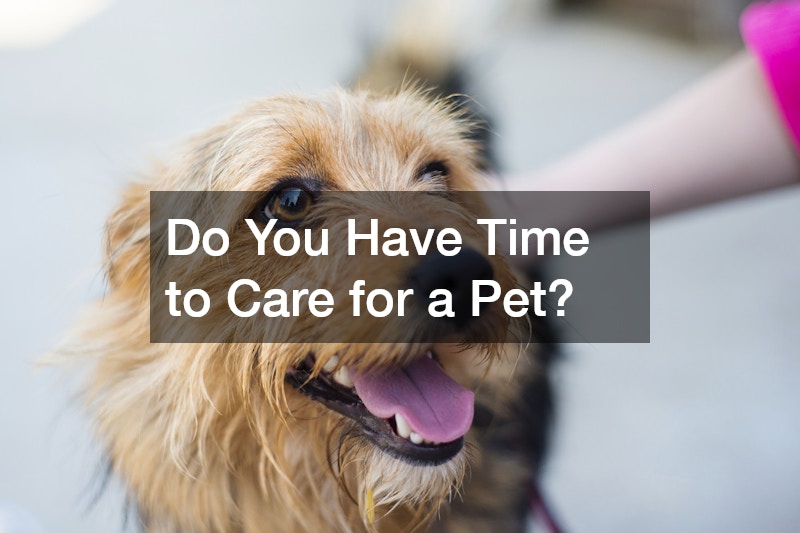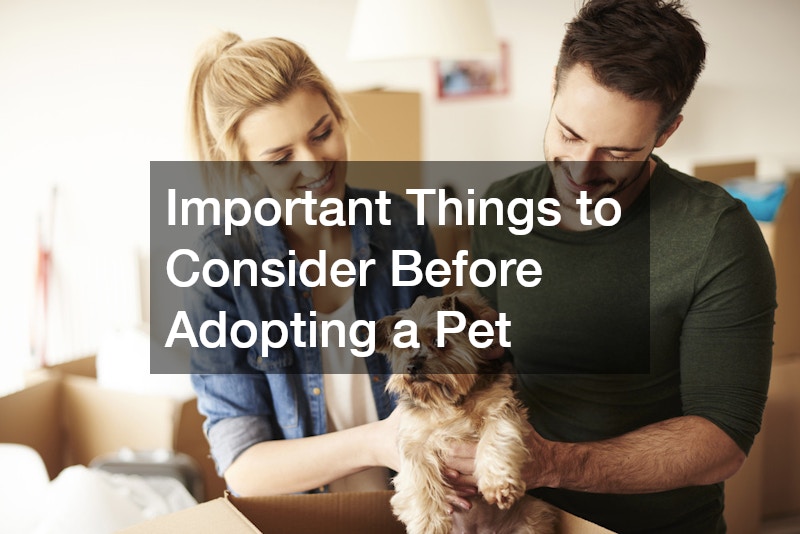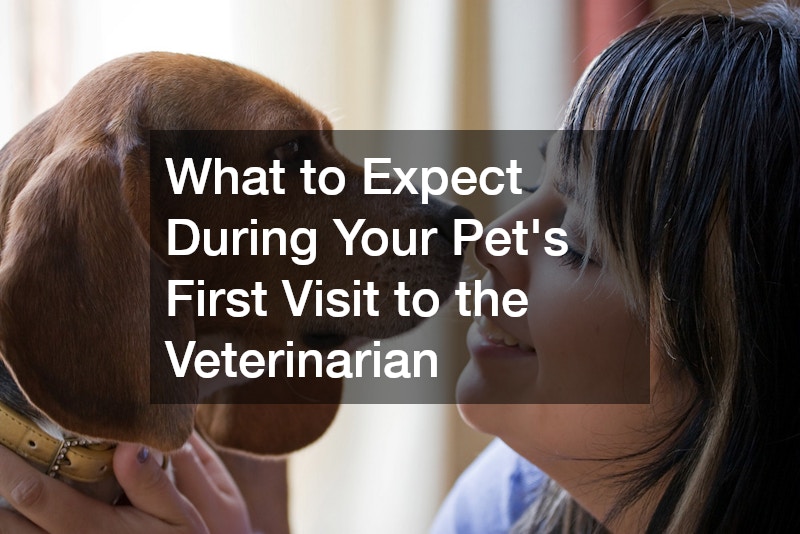Adopting a dog or cat is a wonderful experience. It brings joy, companionship, and unconditional love. However, pet ownership is a significant responsibility that requires careful thought and consideration. Ask yourself these 10 essential questions before you make this life-changing decision.
- Are You Ready to Take on the Responsibility?
The responsibility that comes with pet ownership is one of the most important aspects to consider. Pets require constant attention, care, and commitment.
Time Commitment: Pets need daily care, including feeding, walking, and grooming. Pet ownership can be overwhelming if you’re not prepared. Dogs, for example, require constant mental and physical stimulation. While cats and smaller animals may need less, they still require time and attention.
Long-Term Responsibility: Pets are typically a commitment that lasts for many years. For instance, dogs can live for 10-15 years, and cats can live even longer. You must consider whether you will be able to provide for your pet’s needs throughout their lifetime. This commitment goes beyond the excitement of adopting; your pet will depend on you every day for their well-being.
- Can You Afford the Costs?
Before adopting a new pet, it’s crucial to understand all of the associated costs. Pets are a joy to have, but their care can be expensive.
Initial Costs: The adoption fee can range from $50 to $300, depending on the breed and type of pet. Budget for essentials like food dishes, bedding, crates, collars, and leads. You’ll also need to cover vaccinations, microchipping, and spaying or neutering, which are usually required. These initial expenses will add to the overall cost of adoption.
Ongoing Expenses: Pets require regular care, including food, veterinary visits, grooming, and medical treatments. Food can cost between $20 and $60 per month. Routine veterinary visits typically range from $100 to $200 annually. Flea and tick treatments, vaccinations, and heartworm preventatives are ongoing expenses.
Medical care for pets can be expensive, with some procedures costing hundreds or even thousands of dollars. Pet health insurance or an emergency savings account can help manage these costs.
Unexpected Costs: Pets may also incur unexpected costs, such as medical emergencies or property damage. It’s important to have an emergency fund and insurance plan in place to cover unexpected expenses. Consider these costs ahead of time to ensure your pet will have a long and happy life.
- Do You Have Time to Care for a Pet?

The time commitment is a key consideration when deciding if pet ownership is right for you. Dogs, in particular, require a lot of time and attention every day.
Daily Care: No matter the weather or your personal schedule, dogs need to be walked several times a day. Similarly, it’s important to keep track of feeding times, litter box cleaning, and playtime. If you travel or work long hours, your pet may suffer from loneliness and develop behavioural issues due to lack of attention.
Work-Life Balance: Balancing your work and personal life may require adjusting your schedule to accommodate your pet’s needs. Pet ownership can be difficult for those with busy careers or frequent travel. Having a support system, such as a family member or pet sitter, is essential to help when you’re away.
- Are You Ready to Have a Pet in Your Home?
Pets affect everyone in the household. It’s important that all members of your family are ready to welcome a new pet.
Family Agreement: Discuss the decision with all members of your household, especially if you have children or other pets. Children under the age of 10 may not be able to care for pets daily or understand boundaries. Everyone should understand that a pet can change family dynamics. The arrival of a new pet will be more enjoyable and less disruptive if everyone is on board with the decision.
Other Pets: Consider how your current pets will react to the new addition. Dogs can be territorial, and adding another dog may create tension or stress. Introduce your new pet properly to your existing pets. Observe their behaviour and allow them to adjust gradually. It may take time for pets to get along, so patience is essential, and you’ll need to supervise them during the first few days.
Managing Pet Health in the Household: Your pet’s health can affect everyone in your home. Fleas and ticks, for example, can impact both pets and humans. Maintaining proper flea and tick control is important to keep your home clean and healthy. Regular treatments and a clean home will help prevent pests from spreading.
- Are You Able to Accommodate Your Furniture and Space Needs?
Space is an important factor in determining whether pet ownership will work for you. Dogs, especially, need plenty of space to exercise, roam, and play, particularly if their breed is energetic.
The Size of Your Home: If you live in an apartment, adopting a large dog may not be the best choice. Smaller pets like cats and small dogs are better suited to smaller living spaces, but even they need room to move around and play. Consider whether you have enough space for your pet. Dogs, for example, need space to stretch out and a designated sleeping area. Even cats benefit from having enough room to climb, explore, and play.
Outdoor Access: Dog owners need access to an outdoor space, like a backyard or a nearby park, for exercise and mental stimulation. Dogs need daily walks and playtime to stay happy and healthy. If you don’t have a yard, think about how you will provide your pet with regular outdoor exercise, such as by walking them in local parks or other spaces.
Create a Play Zone: Provide a designated play area for your active pets, particularly dogs, where they can burn off energy and engage in physical activities. If you don’t have a yard, set up an interactive play space indoors with toys and games to keep your pet entertained.
If you do have an outdoor area, consider creating a safe space for your pet to play. A fenced yard is ideal, and you may want to enlist a local welder to install durable, secure fencing to ensure your pet’s safety.
- How Can You Make Your Home Pet-Friendly?
Creating a pet-friendly environment ensures that your new pet feels comfortable and safe while also protecting your possessions. Pet-proofing your home should be one of your top priorities.
Safety Considerations: Start by identifying any potential hazards that could harm your pet. Remove or secure sharp objects, cords, or toxic plants. You may need to install gates around hazardous areas or lock bins to keep curious pets out.
Check areas such as your garage or outdoor spaces. Ensure that your garage door is in good working order to prevent accidents. Pets can sneak into these spaces, so securing them is vital. Hiring a garage repair service can help you ensure that your pet stays safe.
Create a Comfortable Environment: Pets thrive in a designated space. Create a comfortable area for your pet to rest, with separate zones for eating and playing. Make sure their food and water bowls are easily accessible, and provide engaging toys to keep them entertained. This will help reduce destructive behaviour caused by boredom. An organised and welcoming environment will help your pet adapt to their new home and build a sense of security.
- Can You Clean After Your Pet?
Pet ownership involves cleaning up after your pet. Even the most well-trained pet will make messes from time to time. Maintaining a clean home requires consistency and effort.
Regular Grooming: Shedding is a common issue for many pets, especially dogs and cats. The amount of shedding varies depending on the breed. Regular brushing can help minimise fur accumulation, but you’ll still need to vacuum your furniture and floors regularly to remove pet hair. Consider hiring a pet groomer to help maintain your pet’s coat, reduce shedding, and keep them clean.
Accidents and Cleanliness: Even well-trained pets can have accidents, particularly when adjusting to a new home. Puppies may take time to become potty trained, and cats might track litter outside their litter box. Clean up accidents quickly to prevent odours and bacteria. If you face stubborn stains, like those on carpets or rugs, consider professional rug cleaning to restore your flooring and maintain a clean environment.
Long-Term Maintenance: Cleaning challenges can increase as your pet ages. Older pets may have more accidents or develop health issues that affect cleanliness. Cats may shed more or track litter outside the box. Being prepared for these changes will help keep your home clean and comfortable for both you and your pet.
- Are You Prepared to Handle Potential Behavioural Issues?
It’s important to address behavioural issues as soon as they arise. Pets don’t always behave perfectly from the start, so being prepared for these challenges will lead to a better relationship with your pet.
Need for Training: Most pets, especially puppies, need dedicated training to develop proper behaviour. Common issues include chewing on furniture, excessive barking, and destructive behaviour. Cats might scratch furniture or climb into places they shouldn’t. Training, along with tools like chew toys or scratching posts, can help prevent these unwanted behaviours.
Managing Behavioural Issues: Serious behavioural issues, such as separation anxiety or aggression, may require more time and effort to address. In some cases, professional training or behavioural therapy may be necessary. If your dog shows signs of aggression, working with a professional trainer and understanding the triggers can help prevent future issues. In extreme cases, where aggressive behaviour poses a danger, it may be necessary to consult a lawyer, particularly if an attack occurs.
- What is Your Plan for Travel or Vacations?
It’s important to have a plan in place for your pet’s care while you’re away, especially if you travel often. Your pet’s health and happiness should be your top priority, whether you’re going away for a short trip or a long holiday.
Pet Sitters and Boarding: When travelling, you may need to leave your pet with a pet-sitting service or a trusted boarding facility. Pet boarding facilities, such as kennels, offer a safe place for your pet to stay, where they’re fed, exercised, and monitored while you’re away. Make sure to research these facilities to ensure they’re reputable, clean, and have qualified staff.
Travelling with Your Pet: If you plan to bring your pet with you, assess their comfort level with travel. Some pets, like small dogs and cats, adapt well to travel, while others may become anxious or stressed. Invest in travel essentials like carriers, calming tools, and make sure to find pet-friendly accommodation to ensure a smooth journey.
- Are You Ready for Emotional Commitment?

Pet ownership requires patience, love, and understanding. Pets bring immense joy to our lives, but they also need our emotional support. Whether your pet is sick, injured, or just needs a little extra love, being emotionally available is essential to being a good pet owner.
Building a Bond: As you spend more time with your pet, your bond will strengthen. This emotional connection is rewarding, as it allows you to feel fulfilled and needed. Pets can sense when you’re feeling down and may offer comfort during difficult times. A loving relationship is the foundation of a long and fulfilling companionship.
End of Life Considerations: Pets age and their health can decline over time. It’s important to be prepared for this emotional challenge, especially as they near the end of their lives. Providing quality of life and comfort during their final stages can help them pass away peacefully. This may involve providing pain relief, keeping them comfortable, and saying goodbye when the time comes.
Adopting a pet is an exciting decision, but it requires careful thought and preparation. By asking yourself these important questions and being ready for the responsibilities that come with pet ownership, you can ensure that you and your pet enjoy a fulfilling and long-lasting relationship.

